Sauntering up Broadway a few weeks ago – having successfully evaded the attentions of the Naked Cowboy – I had to pinch myself to be reminded I was still in America. At the Ethel Barrymore theatre on 47th Street, the National Theatre’s A Curious Incident of the Dog in the Night-Time is about to enter its 10th month, having recently been showered with prizes at the Tony awards. Another Tony alum, the Royal Shakespeare Company’s Matilda, has been in residence even longer, since early 2013.
Over on 45th, courtesy of Helen Mirren, Elizabeth II has been granting nightly audiences to audiences (with the occasional appearance on Jon Stewart). Another blue-blooded show, Wolf Hall, leaves this Sunday – but royalty will be restored to the Great White Way in October, when Mike Bartlett’s King Charles III transfers from London.
The Tony awards themselves (co-hosted by Scot Alan Cumming) were similarly Brit-heavy. The Audience, David Hare’s Skylight and Curious Incident all won big, with London-originated shows making frequent appearances in the shortlist. Nor does the phenomenon apply only to commercial theatre. The Brits Off Broadway festival was a decade old this year. From November, the newly renovated St Ann’s Warehouse in Brooklyn will bring in several major UK productions, notably the Donmar’s all-female Henry IV. Back in February, it was impossible to make your way up the red carpet at this year’s Oscars without bumping into a star who is English, Scottish or Welsh. And Brits have long populated high-profile American TV series, from The Affair to The Good Wife, not to mention successful imports such as Poldark and Downton Abbey.
Even the normally sober Atlantic magazine has the jitters. In an article morosely headlined The Decline of the American Actor, it points out doomily that every leading role in the film Selma, from LBJ to Martin Luther King, was bagged by a Brit. If that totemic American bildungsroman, The Godfather, were remade, it suggests, the most obvious cast would be British: Tom Hiddleston as Michael, Rory Kinnear as Sonny, Romola Garai as Kay. In the crowning glory (or insult), the magazine argues the true heir to Marlon Brando isn’t a Strasberg Institute-trained Yank – it’s Bristol Old Vic alumnus Daniel Day-Lewis.
As Michael Corleone might say: What gives? Sure, UK actors and productions have been making their presence felt in New York since almost before Broadway was Broadway. English stars have been gonged at the Academy Awards since the silent era (best actor at the second Oscars in 1930 was George Arliss, who found success playing Benjamin Disraeli on Broadway before making it to the screen). Courtesy of Masterpiece on PBS, British TV has been required watching for a certain breed of Anglophile east-coaster for decades.
Still, it feels like a moment; or, perhaps, a tipping point. From artistic directors to lighting designers, choreographers to composers, British talent has rarely been so visible on American stages. Any more visible and Manhattan’s theatre district might consider renaming itself to match Chinatown and Little Italy. Little Britain, perhaps.
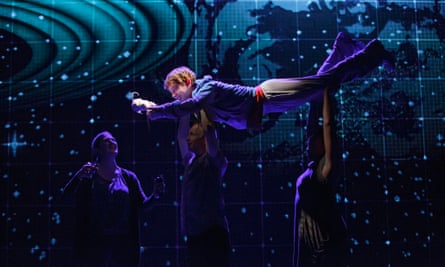
Tested in the West End
Why? And why now? In search of answers, I make my way to the offices of the entertainment ad agency Spotco, where the decor in reception is a colourful collage of imported show-posters. I’ve come to meet Tim Levy, who heads the American office of the (British) National Theatre. Levy has run NT USA since 2012, having first come out in 2007 to work with the Broadway producers Robert Boyett Theatricals. Much of his job centres on arranging transfers for NT shows to North America, as well as talent-spotting American work that might make the return journey.
It’s an exciting time, says Levy, an affable, boyish 36-year-old whose English accent is only slightly softened by nearly a decade in New York. “It goes in waves, but with Broadway it’s been a brilliant year. Curious is inherently a risky show because of its subject matter – Mark Haddon’s book isn’t as well-known here as it is back home, and there are no stars in the production – but obviously we’re delighted. Even better is the fact that if you look at the not-for-profit theatres like the Public, the Atlantic theatre company, New York Theatre Workshop, they’re also full of British work. There’s so much around at the moment.”
So why are American producers shopping in the British aisle? One obvious answer is that if a show has proved it has staying power in either the West End or the UK subsidised sector, it’s less of a risk. Putting a new show straight onto Broadway is dauntingly expensive, perhaps three times what it costs in the West End – by some estimates up to $15m just to get a show up and running. It’s also forbiddingly chancy; most homegrown US productions have usually done the rounds at regional theatres or not-for-profits before they graduate to the Great White Way.
But it’s not just that, suggests Levy: while being careful to praise the scene in his adopted homeland, especially in new writing (“American voices are doing staggering things at the moment”), he hints that British companies and directors are more willing to experiment, particularly in straight drama. Or able to experiment: War Horse, which was developed over five years and ran for two more on Broadway, gave Michael Morpurgo’s novel the whiz-bang production values of a musical. Curious – devised with dance-movement group Frantic Assembly and a showcase for Bunny Christie and Paule Constable’s lustrous high-tech video design – was nurtured at the NT’s smallest space before transferring to the West End, long before it took its chances stateside.
“It’s subsidy,” Levy says flatly. “It goes without saying that if you talk to theatremakers here, they wish there was government subsidy for the arts. It’s not impossible to develop excellent new work, but it’s much harder.”
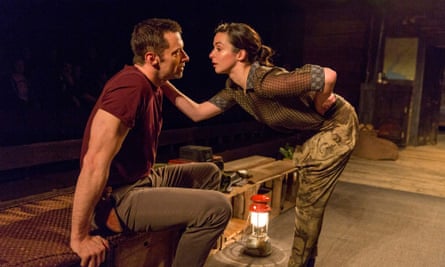
A few blocks north, I call in at the offices of the commentator Howard Sherman, who’s been watching the comings and goings in American theatre for the best part of four decades. Although he’s sceptical about transatlantic rivalry (“I think rivalry is a bit of a misnomer”), he concedes that the British have been riding high for the last few years and are likely to continue: “There’s a long history of British drama and British actors coming over to the US; it goes back hundreds of years, even before I could be factually specific. And this year a lot of British shows have come at once, as evidenced by the Tonys.”
But there is one arena in which the trade deficit is balanced out, he points out: musicals. “Look at the hit musicals in London at the moment, and you realise how many are American. The flow tends to be that plays get success in London and come here, while with musicals it’s the other way round. It’s not just a one-way street.”
Much of this has to do with basic Broadway economics, he explains: producers are increasingly looking to celebrity casting as the only way to sell plays, whether it’s Mirren’s turn as Her Maj or a script written by Larry David. “Would Jez Butterworth’s The River have played Broadway without Hugh Jackman? It’s very questionable. As soon as someone of that calibre wants to be involved, it doesn’t really matter what the material is.” He pauses. “But then you look at something like Shakespeare, and the overwhelming majority of productions are British, from Maurice Evans after the second world war to Jude Law to the RSC’s residency at the Armory in 2011.”
Why does he think that is? He frowns. “I think history has a lot to do with it.”
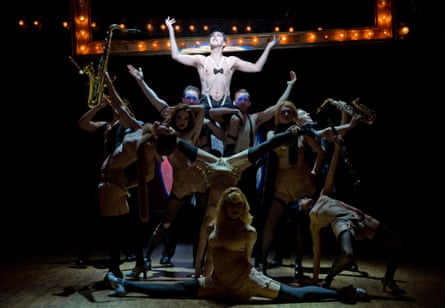
A theatrical rivalry
As the British are wont to say, that’s a bit of an understatement. Follow the history of American theatre back to its beginnings and you find strong bonds between the two countries, but also a good deal of friction. Though it’s likely that early European settlers brought some forms of drama with them during the 16th and 17th centuries, the first professional troupe to play on American shores was British: the London Company of Comedians, led by an out-of-work actor-manager called Lewis Hallam. Together with his wife and a team of performers, Hallam headed across the Atlantic in summer 1752 on a sloop called the Charming Sally and set up in Williamsburg. Their first show? The Merchant of Venice, long popular back at home.
Following Hallam’s death, the troupe refounded itself as the American Company in 1763, wisely seizing on the rebellious atmosphere surging through the soon-to-be ex-colony. Based in Philadelphia, then New York, they even managed to make incursions into the aggressively anti-theatrical stronghold of Newport, Rhode Island (to accommodate their Puritan audience, they offered Othello as a “Moral Dialogue in five parts”).
After independence and into the 19th century, British stars continued to travel across the ocean, attracted by Americans’ riotous enthusiasm for drama (Alexis de Tocqueville, visiting in the 1830s, opined that “love of the theatre [is] of all literary tastes the most natural to democratic peoples”) and the huge fortunes that could be made by even a brief tour.
Nonetheless, these exchanges didn’t always escape the political fissures that divided the two nations. When the brooding star Edmund Kean visited in 1820, he won over a cynical New York press (“the most complete actor … that ever appeared on our boards”, gushed the New York Post), but made the mistake of treating the audience in Boston with condescension, refusing to go on as Richard III after being underwhelmed by the size of the audience. Returning five years later, he was astonished to find that Boston remembered the Englishman’s insult only too well: on opening night the audience graduated from catcalls and whistles to throwing food, bottles and other missiles, before – once the terrified Kean had fled – turning their wrath on the theatre. It was perhaps the first theatre riot in American history.
Researching a book on the history of global Shakespeare, I’ve spent some time in the performance arts section of the New York Public Library at Lincoln Center. Anyone interested in the rivalries between British and American drama would do well to refer to its collections, particularly those covering 1848-9. What they reveal is the darkest day in American theatre history.
The story centres on an Edwin Forrest (1806–1872), the first American actor to make a national name for himself. Despite being lionised by the critics when he visited London in 1836 – they’d never seen anything like him – Forrest became convinced that the British never took his talents seriously, and when he returned to the UK in 1845, he expressed his frustration by beginning a feud with the greatest English star of the age, William Charles Macready.
Macready himself had a growing reputation in the US. Convinced that Macready was challenging him on home turf, in 1849 Forrest initiated a showdown with his British rival, deciding to play Macbeth – one of Macready’s favourite roles – at the Broadway Theatre, while Macready did his own production at the Astor Place Opera House. Amid rabid anti-British press coverage, the performance on 10 May turned violent, with a furious mob inundating the theatre. Militia fired into the crowd. At least 22 people ended up dying, with more than 100 injured.
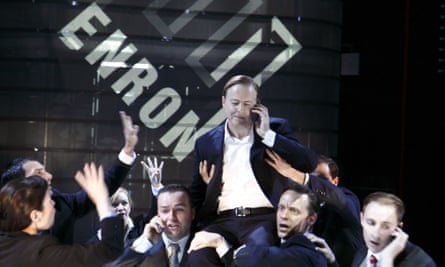
In the musical- and celebrity-heavy world of contemporary Broadway, a patriotic riot provoked by a stage play is hard to imagine (it’s hard enough to believe producers would stage in excess of one production of Shakespeare at once). But transatlantic tensions do linger, as evidenced by the experience of Lucy Prebble’s Enron, which made its way to Broadway in 2010. Rupert Goold’s production was lauded at the Chichester festival and London’s Royal Court theatre for its savvy critique of corporate corruption. The critics were near-unanimous in their praise, particularly given the work’s eerie prescience regarding the arrival of the credit crunch; the Sunday Telegraph declared it a “strong buy”, and it soon transferred to the West End. Goold and his team were besieged by offers from American producers. It looked a dead cert to be a Broadway smash.
Yet when the production opened in New York, recalls Prebble, it fell flat. Preview audiences were jittery; the cast – Americans rather than the British team back home – struggled to find their rhythm. There were hisses, walk-outs. When the New York Times review landed, describing Enron as “flashy” and “laboured”, those behind the production knew they were sunk. The show closed after just 12 days. Ben Brantley, the Times critic, was irked by Goold’s high-voltage production (“all show … and little substance”), but some suspected it wasn’t just that. The idea of a young British writer taking American corporate malfeasance to task was too much to stomach, particularly just a few miles north of Wall Street. Writing in the Guardian, David Cote of Time Out New York suggested: “It’s our dirty laundry; we’ll get around to cleaning it. Someday.”
“It never occurred to me that saying human beings caused the financial crash was contentious,” says Prebble now. “But of course in the UK, it felt like I was saying humans. In New York it felt like I was saying Americans.”
The irony of Enron the play rapidly going out of business isn’t lost on her, she adds: “Maybe a US audience felt as a young British girl coming over there, I couldn’t claim to really know anything of international enterprise – of greed, of business, of America, of this man [former Enron CEO Jeffrey Skilling] who lost the people around him their jobs and millions of dollars and saw all his work collapse in a few weeks. But I do now.”
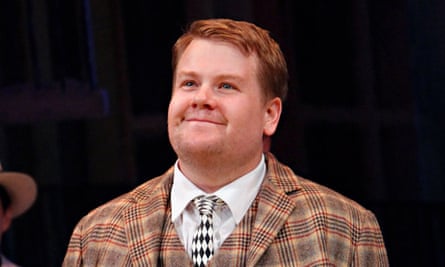
Levy concedes that, while London and New York can seem on the surface like intimate siblings, cultural differences run deep: “There is an unapologetic passion for success here in all of American culture. That British apology about success – people don’t buy that here.” There’s no such thing as a dead cert, he adds.
Sherman concurs: “Take a show like One Man, Two Guvnors. It did well in New York, but it wasn’t a smash. It was very British humour; part of it was even the title. We think of different things when we say the word ‘governor’. We don’t think of some upper-class guy.”
Whatever the answer, students of Anglo-American relations would do well to turn up at the Lyceum theatre on 45th Street this October, when director Ivo van Hove will bring an all-British cast headed by Mark Strong across from London. The play is Arthur Miller’s A View from the Bridge, set among the tight-knit Italian American community in Red Hook, Brooklyn. Early next year, Van Hove is rumoured to be staging another Miller classic, The Crucible, again with British actors.
A Belgian-born, Amsterdam-based director doing two American classics with British casts, in the centenary of Miller’s birth? I’m not saying there’ll be riots – but my eyes are peeled for the review in the New York Times.
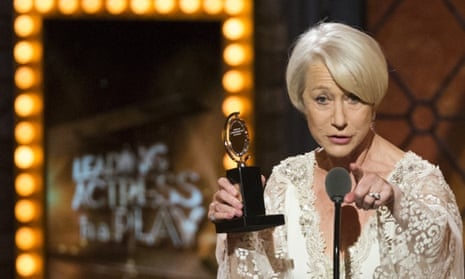
Comments (…)
Sign in or create your Guardian account to join the discussion